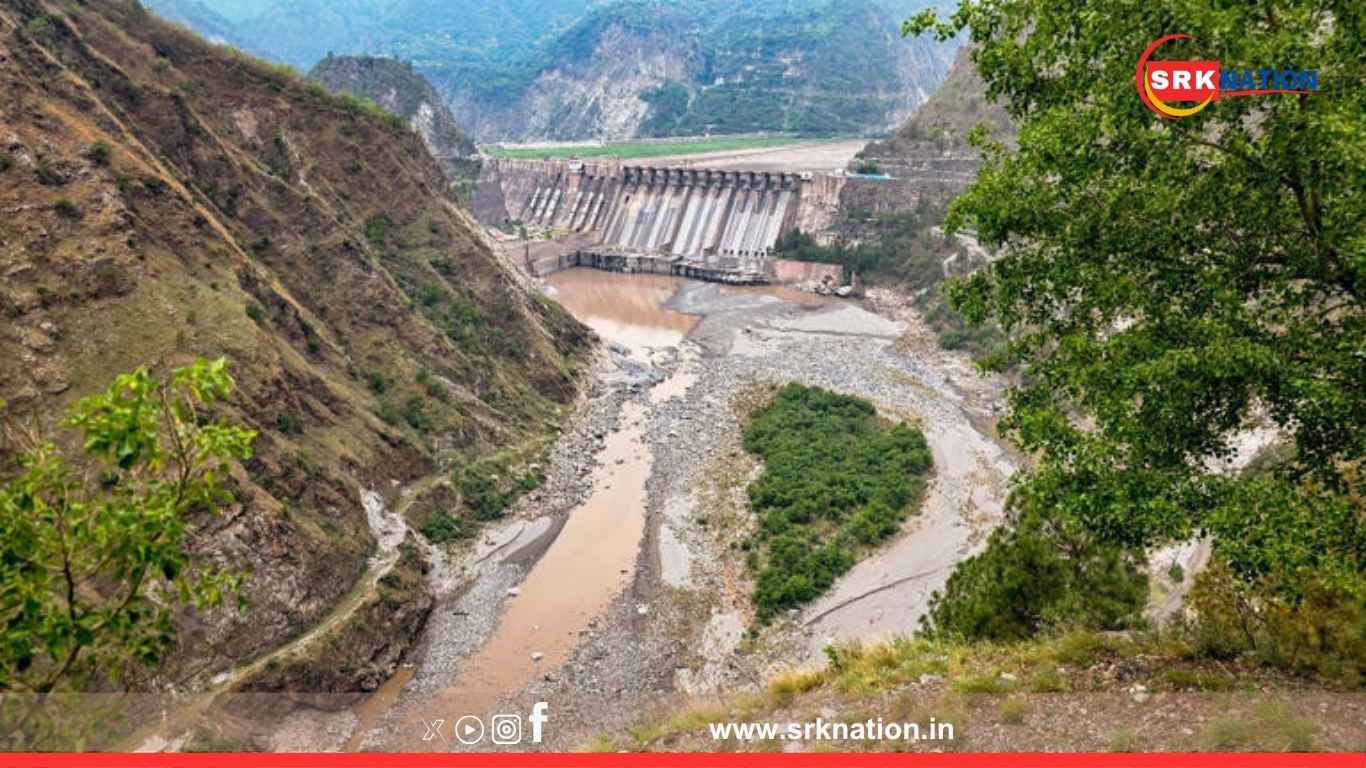In a significant geopolitical and strategic development, the Government of India is preparing to launch a public awareness campaign to explain the national benefits of suspending the Indus Waters Treaty (IWT) with Pakistan, if such a decision is finalised. According to official sources in the Ministry of Jal Shakti and Ministry of External Affairs, senior ministers have been asked to prepare detailed communication material for public outreach on this critical matter.
Background: What Is The Indus Waters Treaty?
Signed in 1960 between India and Pakistan under World Bank mediation, the Indus Waters Treaty allocates river waters of the Indus Basin as follows:
| River | Allocation |
|---|---|
| Eastern Rivers (Ravi, Beas, Sutlej) | India gets exclusive rights |
| Western Rivers (Indus, Jhelum, Chenab) | Pakistan gets 80% share, India limited to non-consumptive use (hydropower, irrigation without altering flow) |
The treaty has survived three wars and decades of tensions, with India maintaining water flow to Pakistan as per international commitment.
Why Is India Considering Suspension Or Withdrawal?
Sources in the government indicate three main reasons behind recent discussions:
- National Security Concerns
Continuous cross-border terrorism and infiltration from Pakistan despite goodwill gestures like maintaining treaty commitments. - Strategic Leverage
Water as a critical geopolitical tool to influence Pakistan’s policy on terrorism and Kashmir. - Domestic Development Needs
Full utilisation of western river waters for irrigation, drinking, hydropower, and industrial needs in Jammu & Kashmir, Himachal Pradesh, Punjab, and Ladakh.
Key Ministers Preparing Awareness Campaign
Senior ministers including Union Jal Shakti Minister Gajendra Singh Shekhawat, External Affairs Minister S Jaishankar, and Home Minister Amit Shah have been asked to:
- Prepare simplified public communication documents outlining benefits.
- Conduct press briefings, interviews, and social media outreach explaining India’s legal rights under Article 62 of Vienna Convention (suspension under fundamental change of circumstances).
- Counter Pakistani propaganda that portrays India as violating international law.
Potential Benefits Of Suspending The Indus Treaty
1. Enhanced Irrigation And Agricultural Growth
Suspending or modifying the treaty would allow India to:
- Build large-scale irrigation canals from Chenab, Jhelum, and Indus rivers.
- Expand command area irrigation in Jammu, Kathua, Samba, Ladakh, Punjab, and Himachal Pradesh.
- Boost agricultural productivity and reduce dependence on unpredictable monsoon rainfall.
Example:
Chenab river water could irrigate additional 5 lakh hectares in Jammu and Punjab.
2. Greater Hydropower Generation
India is permitted to build run-of-the-river hydroelectric projects under the treaty with limited storage. Suspension will allow:
- Construction of large storage dams to regulate flow and optimise hydropower generation.
- Enhance energy security in J&K and Himachal Pradesh.
- Reduce dependence on coal and thermal power, aiding climate goals.
Current Projects Awaiting Expansion:
| Project | River | Capacity (MW) | Status |
|---|---|---|---|
| Ratle | Chenab | 850 | Under implementation |
| Kishanganga | Jhelum | 330 | Operational |
| Bursar | Chenab | 800 | Under planning (storage dam if treaty suspended) |
(Source: NHPC and Jal Shakti Ministry data)
3. Strategic Pressure On Pakistan
Experts believe altering or suspending the treaty would:
- Put immense water stress on Pakistan, especially Punjab and Sindh provinces which depend on Indus system irrigation.
- Force Pakistan to reconsider policies of terrorism support due to internal economic and agrarian distress.
- Strengthen India’s bargaining power in diplomatic negotiations.
4. Strengthening India’s Position As Upper Riparian State
Under international water laws, upper riparian states like India have preferential rights to utilise river waters originating within their territory, subject to reasonable use principles. Suspension will:
- Reinforce India’s sovereign rights over its natural resources.
- Reduce historical asymmetry in river water sharing with Pakistan.
Legal Grounds For Suspension
India’s legal teams argue that:
- Vienna Convention on Law of Treaties (1969) permits suspension under fundamental change of circumstances.
- Continuous proxy war and terrorism by Pakistan constitute “material breach of treaty obligations” under Article 60.
- Treaty is bilateral, not multilateral, thus not binding under UN conventions if national security is threatened.
Concerns Raised By Strategic Analysts
However, some former diplomats and security experts caution that:
- Suspension could push Pakistan towards increased hostility, including attacks on Indian infrastructure projects.
- China, as an ally of Pakistan, might counter India by altering Brahmaputra water flows from Tibet.
- India’s global image as a law-abiding, treaty-respecting nation may face temporary dent.
Former Foreign Secretary Shyam Saran recently noted:
“India must weigh strategic gains against potential international legal and environmental challenges before unilaterally suspending a treaty of this nature.”
Pakistan’s Reaction
Pakistan’s Ministry of Foreign Affairs responded sharply to reports of suspension discussions, stating:
“Any move by India to unilaterally suspend the Indus Waters Treaty will be treated as an act of aggression, with appropriate diplomatic and strategic response.”
Pakistani media termed it “water terrorism”, calling on China and OIC to pressure India against such decisions.
Public Awareness Campaign: Key Messages
The government’s communication outreach will focus on:
- Explaining how the treaty restricts India’s own people from benefiting fully from their rivers.
- Emphasising that India has never used the treaty as a weapon despite wars and terrorism.
- Projecting suspension as a last resort, only if Pakistan continues cross-border terrorism.
Upcoming Steps
- Inter-ministerial meetings this week to finalise communication strategy.
- Parliament session statements to frame India’s position.
- Public webinars and media briefings by MEA and Jal Shakti officials.
- Outreach to affected states like J&K, Punjab, and Ladakh to build internal consensus.
International Perspectives
| Country/Organisation | Position |
|---|---|
| World Bank (guarantor) | Urged both countries to resolve differences via dialogue. |
| China | Silent officially but likely to support Pakistan diplomatically. |
| US | Cautious; prioritises regional stability but recognises India’s water rights concerns. |
| EU | Encourages peaceful resolution without impacting humanitarian needs in Pakistan. |
Conclusion
The Indus Waters Treaty suspension debate reflects India’s shift towards a hard power approach in dealing with national security threats emanating from Pakistan. While the government prepares a public awareness campaign to build consensus and explain benefits to citizens, the geopolitical, legal, and humanitarian implications of such a decision will require careful long-term strategic calculation.
As ministers gear up to explain the nuances to the Indian public, the coming weeks may witness intense diplomatic exchanges, internal policy meetings, and heated political debates over water, sovereignty, and national security – all deeply intertwined in South Asia’s historical fault lines.
Disclaimer: This article is based on government sources, legal experts’ opinions, and recent policy briefings as of June 30, 2025. Final decisions regarding treaty suspension remain under official deliberation and will be updated upon formal announcements.











